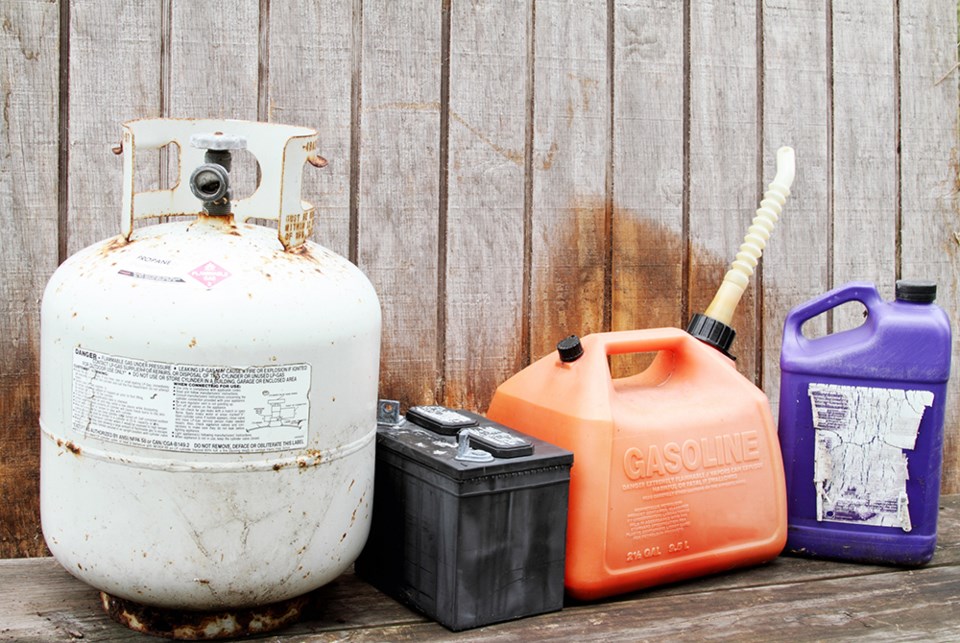Our home is, ideally, our sanctuary. The place we retreat to and recharge. It also happens to be where we store – perhaps unbeknownst to us – hazardous waste.
Understanding the best practices for disposing of these corrosive, poisonous, caustic or flammable chemicals that are potentially harmful to the planet, pets and people is in all of our best interest.
Most garages, sheds, kitchens and bathrooms host a broad chemical soup of products – paints, cleaners, pesticides, pool chemicals and nail polish among them. Storing and managing these properly at the end of their life (or our use of them) requires special care.
Spills, natural disasters and accidental combining of these with one another can cause harm so the less we have around the home, the lower the risk of things going wrong.
Avoid storing chemicals. Instead, buy only what you need at the moment and if you don’t plan on using the remainder, follow safe disposal practices, which vary according to material type.
Some household hazardous waste products or their containers are included in recycling stewardship programs. A broad range of these are managed by Product Care and they must be in their original packaging in order to be taken back.
Pesticides (liquid, solid or aerosol) for instance, in quantities under 10 litres (liquids) or 25 ounces (aerosols) that have a poison symbol, a Pest Control Product (PCP) number and the word “domestic” on their labels are accepted at Product Care locations (Augusta Recyclers) – notify staff directly when dropping them off.
Similar volumes of full or empty containers of liquid and aerosol flammables such as kerosene, turpentine, degreasers and paint thinners can be returned for free to Product Care receiving depots as well, when in their original containers. Gasoline is also accepted in a ULC-approved gas can or jerry can (up to 25 litres).
Used motor oil, oil filters, antifreeze and antifreeze containers can be dropped off for free recycling through the BC Used Oil program at Sunshine Disposal & Recycling on Franklin Avenue on Wednesdays, Fridays and Saturdays between 10 am and 4 pm. Augusta accepts these, too, but charges may apply.
Some similar products to the above mentioned ones are not, however, included in Product Care or another stewardship program for sensitive materials. Fertilizers, diesel, butane and their containers, for example, do not have recycling programs currently. What are the best practices for managing disposal of these?
Recycling Council of BC advises that many liquid household hazardous products are best disposed of by absorbing them into cat litter, sawdust or fabric and then placing the dried up materials and their container into the garbage. Certain chemicals, like strong acids and mercury containing light bulbs, require special considerations when disposing to avoid exposure to harmful chemicals.
Labels include storage tips and descriptions of hazards, which is why these types of materials should always be stored in their original containers with labels intact.
Navigating the world of chemicals requires patience and mindfulness. When in doubt about where to take these products or their containers, use the Recycling Council of BC’s search tool and speak with depot staff when dropping them off.
We are fortunate to host many free drop-off options for these hard to manage items, and making use of these protects us and the planet.
Let’s Talk Trash is contracted by qathet Regional District to deliver its waste reduction education program. For more information, email [email protected] or go to LetsTalkTrash.ca.



